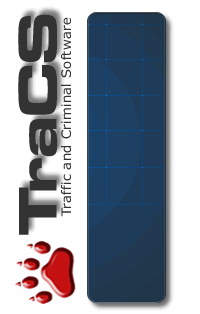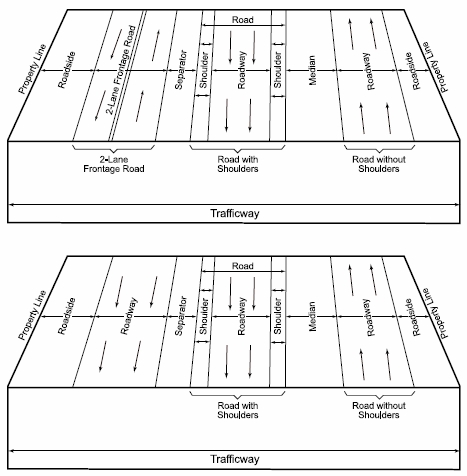

This field identifies the type of motor vehicle at the time it became an involved vehicle in the crash.

01 - Motor Vehicle In-Transport (Inside or Outside the Trafficway) is used to indicate that this is a motor vehicle in-transport. "In-Transport" means any part of the vehicle’s primary outline as defined by the four sides of the vehicle (excluding open doors or mirrors) is within the roadway (travel lanes) or the vehicle is in motion anywhere within or outside the trafficway boundaries.
Examples:
- Motor vehicle in traffic on the highway.
- Motionless motor vehicle abandoned on the roadway travel lanes.
- Motor vehicle on roadway stopped at traffic signal.
- Motor vehicle driving or in motion on the shoulder, median or roadside.
- Motor vehicle driving down a private driveway.
- Motor vehicle in motion, outside the trafficway boundaries (e.g., vehicle pulling up to a pump in a gas station; not within trafficway; vehicle in motion in a parking lot aisle; lawn tractor driving in a field adjacent to the trafficway; ATV driving on a dirt track next to trafficway; etc.).
Examples:
- Motor vehicle parked in designated curbside parking lane.
- Motor vehicle parked in designated curbside parking lane with an open door crossing into the travel lane.
- Motor vehicle stopped completely on the shoulder, median or roadside.
Examples:
- Motor vehicle parked in a private driveway, parking lot space, or other private property (outside the trafficway boundaries).
- Any vehicle used for private construction occurring outside the trafficway boundaries.
Examples:
- Asphalt/steam roller working in a highway construction zone paving the roadway or flattening dirt.
- State highway maintenance crew painting lane lines on the road, mowing grass on the roadside or median, repairing potholes, removing debris from the roadway, etc.
- Utility truck or a "cherry picker", performing maintenance on power lines along the roadway or maintaining a traffic signal.
- A private excavating company contracted by the State digging the foundation for a new overpass.
- A state, county, or privately owned snow plow, plowing ice/snow as part of a highway maintenance activity.
- Street sweeper sweeping the street.
- A vehicle in a mobile work convoy displaying arrow boards or other signaling devices warning motorists of the work activity.
- A law enforcement vehicle which is participating strictly in a stationary construction or mobile maintenance activity as a traffic slowing, control, signaling or calming influence.